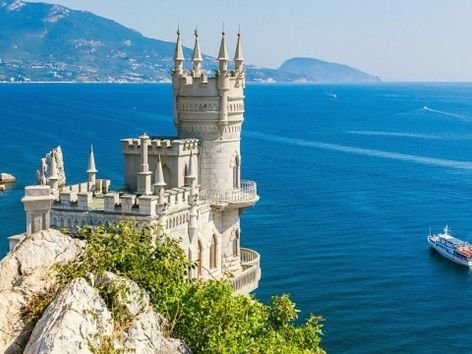Crimea: History, Conflict, and the Future of a Contested Region
Crimea has once again become a trending topic in global discussions, sparking debates about history, sovereignty, and geopolitics. Located on the northern coast of the Black Sea, Crimea holds immense strategic and cultural significance. From its rich history to its role in modern conflicts, the peninsula remains at the center of international attention.
The Historical Significance of Crimea
it has a diverse and complex history shaped by Greeks, Tatars, Ottomans, and Russians. Once part of the Soviet Union, it was transferred to Ukraine in 1954. This decision had little impact during Soviet times but became a source of contention after the USSR collapsed in 1991. Crimea’s unique blend of cultures, languages, and traditions makes it one of the most historically layered regions in Eastern Europe.
The 2014 Annexation of Crimea
The turning point came in 2014, when Russia annexed Crimea following a disputed referendum. While Moscow claimed overwhelming support from Crimean residents, Ukraine and most of the international community declared the move illegal. This triggered sanctions against Russia and marked the beginning of ongoing tensions between Moscow and Kyiv, setting the stage for the wider conflict that escalated in 2022.
Crimea in the Russia-Ukraine War
Since the war in Ukraine intensified in February 2022, it has been both a strategic stronghold and a target of resistance. Russia uses the peninsula as a key military base for operations in southern Ukraine, while Ukrainian forces have carried out drone strikes and attacks to weaken Moscow’s control. Control over Crimea is considered crucial for both nations — for Ukraine, reclaiming it represents sovereignty, while for Russia, it symbolizes national pride and strategic dominance.
International Response to Crimea’s Status
Most countries, including the U.S. and members of the European Union, continue to recognize Crimea as part of Ukraine. Sanctions against Russia remain tied to its annexation of the peninsula. Meanwhile, Turkey and other regional players have expressed concerns about Crimean Tatars, an indigenous Muslim minority that has faced persecution since 2014.
The Future of Crimea
The future of it is uncertain. As the war continues, questions remain: Will it return to Ukraine? Can negotiations settle the conflict? Or will it remain under Russian control indefinitely? Experts argue that it could be the key to any future peace deal, making its status one of the most critical issues in international diplomacy today.
Why Crimea Matters Globally
- Strategic location: Crimea’s ports on the Black Sea are vital for military and trade routes.
- Energy resources: The region holds offshore oil and gas reserves.
- Cultural identity: Crimea represents centuries of shifting borders, communities, and traditions.
- Security risks: The conflict over it could determine the stability of Eastern Europe for decades.
Final Thoughts
it is more than just a peninsula — it is a symbol of power, heritage, and unresolved conflict. As the Russia-Ukraine war continues, it will remain at the center of global headlines, shaping not only regional security but also the future of international relations.
Keywords for SEO: Crimea conflict, Russia annexation, Ukraine war, Black Sea region, Crimean Tatars, Russia-Ukraine tensions.


